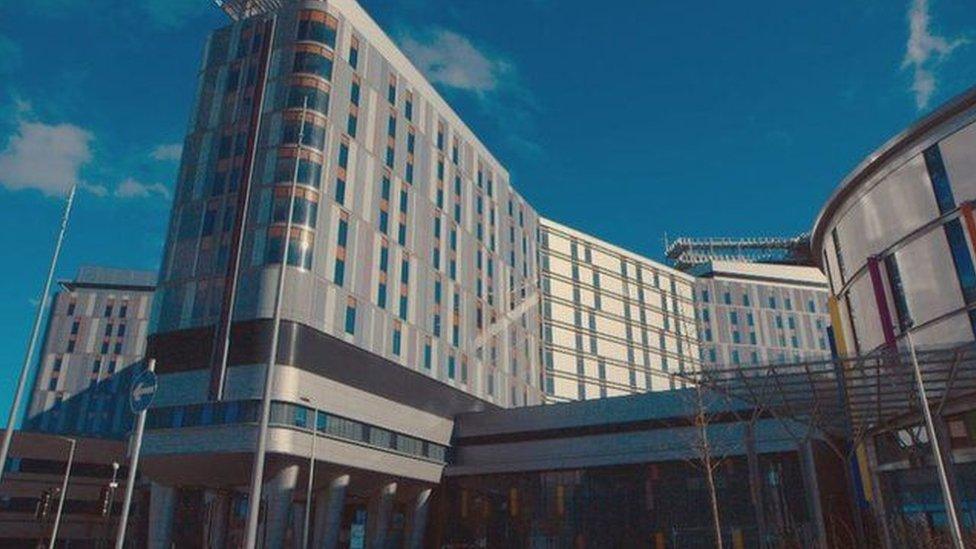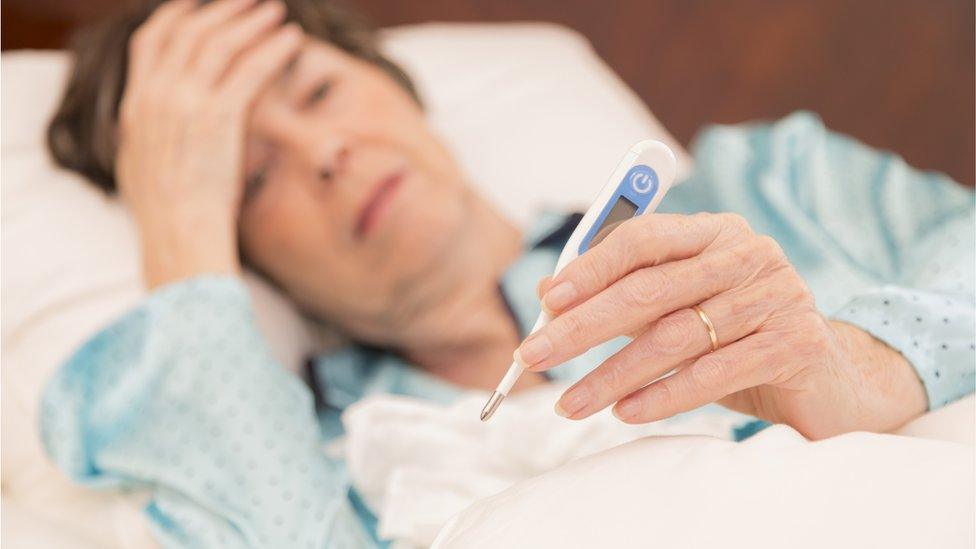Health board apologises to patients for 'lengthy' waiting times
- Published

Bosses said 14 operations were cancelled at the Queen Elizabeth University Hospital on Thursday
Scotland's largest health board has apologised to patients for lengthy waits at hospital emergency departments over the festive period.
NHS Greater Glasgow and Clyde is using surgical beds for medical patients and has had to create more in-patient beds to cope with demand.
The Queen Elizabeth University Hospital had to cancel 14 operations on Thursday.
It blamed winter pressures from flu, respiratory infections and norovirus.
Jane Grant, chief executive of NHS Greater Glasgow and Clyde, said: "We planned for these winter pressures by creating extra capacity - such as extra in-patient beds at Gartnavel Hospital and restricting staff holidays.
'Additional pressures'
"Our winter plan is designed to create extra resilience and enable us to respond to these additional pressures and open additional in-patient beds where appropriate.
"These winter beds are currently being used.
"We accept that a number of our patients have waited longer than we would have liked.
"However, this is due to the high level of demand and we apologise to those patients who experienced lengthy waits.
"When our patients are kept waiting for admission to hospital they are still receiving care from our doctors and nurses."
The number of flu cases in Scotland during the last week of December was double that during the same period last year.
The total recorded suffering from the virus went from 22 per 100,000 in the last week of December 2016 to 46 per 100,000 in 2017.
Health Protection Scotland (HPS) said half of NHS Boards are reporting significant ward pressure as a result.

The number of flu cases has doubled
Health Secretary Shona Robison has thanked staff for their "ongoing dedication and hard work throughout this exceptionally busy winter period".
She said: "Health staff across Scotland are dedicated to helping patients and are doing a fantastic job in difficult circumstances.
"These figures show once again the challenges they are tackling.
"So far, the vaccine is proving to be effective against the most commonly encountered flu strains this season although it is still too early to have a complete picture.
"But there's no doubt that the increase in cases, particularly affecting people with complex and multiple conditions, is putting increased pressure on our systems."

Just over half of the circulating strains of flu match those in the 2017/18 vaccine
The flu increase caused a big rise in demand for NHS services.
According to HPS, in the final week of 2017:
A&E attendances rose by 20% compared to the same period last year
The Scottish Ambulance Service reported an almost 40% increase in the number of calls on Hogmanay alone
NHS 24 received more than 45,000 calls in the four days over Christmas - almost double the number of calls in the same period last year
The health minister said: "Our £22.4m winter funding, the highest amount in any one year, will continue to be invested in health boards throughout winter to help them cope with pressures.

The Scottish Ambulance Service saw an almost 40% increase in calls on Hogmanay
"Scottish government ministers, clinicians and senior officials are continuing to monitor the situation closely and keep in contact with boards to fully understand and assist with the pressures they are under.
"It is important for patients to be aware that while health boards continue to take all appropriate steps to respond to increased demand in line with their winter plans - which may include some deferral of non-urgent elective surgery - there is no blanket cancellation of non-urgent elective procedures for the month of January as is the case in England."
The public is being urged to support NHS staff by following health advice available through NHS Inform, external.
- Published29 December 2017
